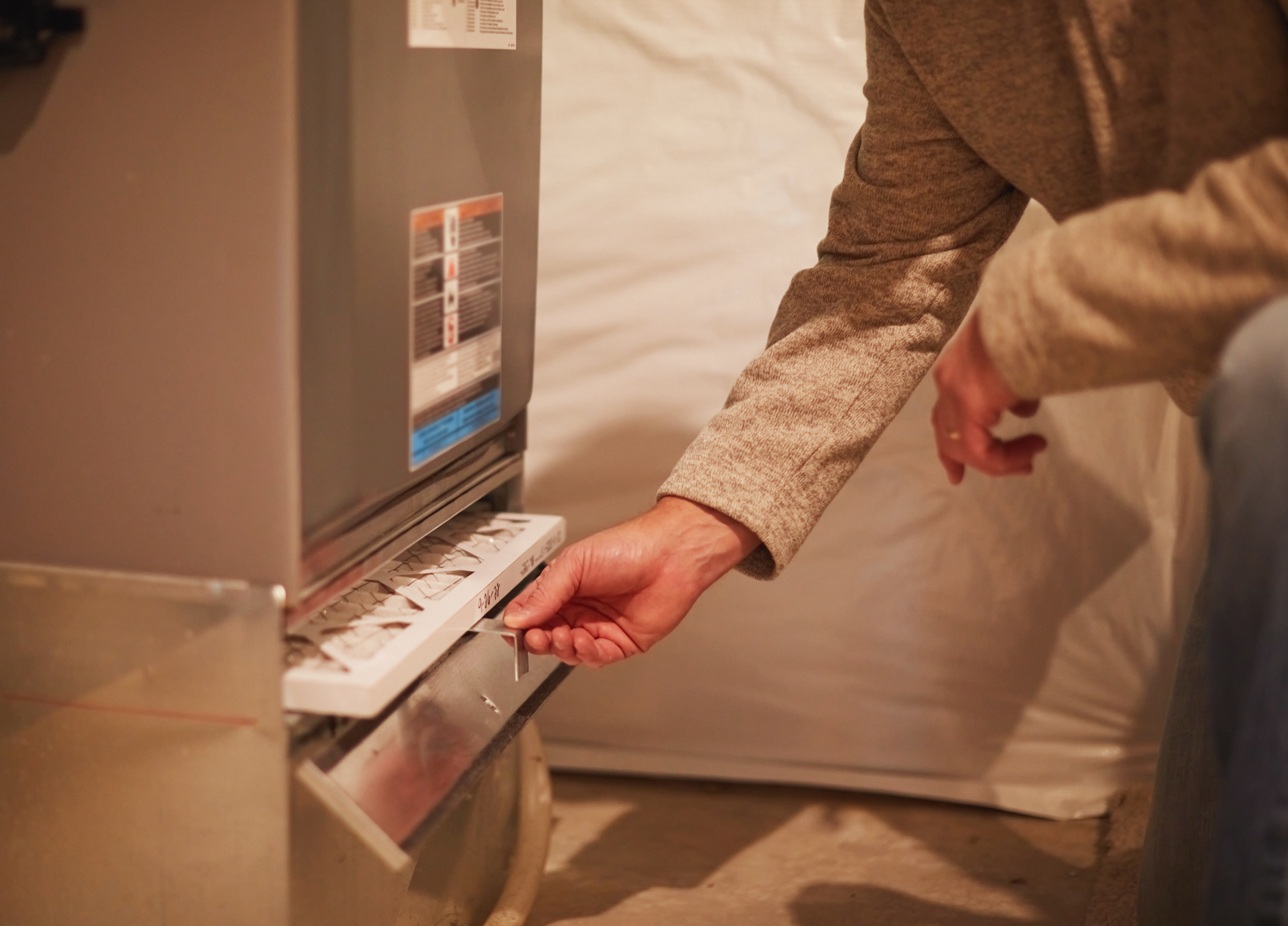Passed in November 2022, the “Energize Denver” ordinance impacts multi-family housing and commercial building owners in Denver, but its effects echo in Wheat Ridge, CO, and the surrounding cities. Aimed at phasing out natural gas appliances, it doesn’t require the removal of existing units. Instead, it places stern limitations on new installations.
Although these changes have yet to impact residential property owners, there’s good reason to believe that they’ll do so in the near future. As Wheat Ridge prepares and implements its own sustainability plan, “Sustainable Wheat Ridge,” locals can use “Energize Denver” as a guide on what to expect.
How “Energize Denver” Impacts New Commercial Construction in the Region
Electrifying properties or moving away from fuel-combusting heaters in favor of electric heat pumps or furnaces is rarely cheap. Not only does this require the disconnection and capping of gas lines, but it often necessitates new furnace storage areas, air delivery systems, and other infrastructure changes. Research shows that pushing homeowners to electrify their own properties at rapid rates is hardly feasible. Thus, to move closer to their zero-emissions goals, states like Colorado and other municipalities are putting pressure on commercial property owners instead.
Replacing a Gas Furnace With Another Gas Furnace
If you currently have a failing gas furnace in your commercial building or multi-family residence, you can apply to replace this unit with the same or a comparable gas-fired model. However, while replacing defunct gas furnaces with new gas furnaces is still allowed, it does require a more rigorous permitting process in Denver. In addition to submitting standard applications, property owners and their contractors must subject their replacement equipment to extensive testing and reporting.
Just six miles away, Wheat Ridge has yet to outlaw new gas furnace installation in either residential or commercial construction. However, in 2006, Wheat Ridge was the very first local municipality to require furnaces with annual fuel utilization efficiency (AFUE) ratings of 90% or higher. Thus, residents can expect similarly stringent measures in the future as the Sustainable Wheat Ridge team works to stay on par with increasingly strict state-wide efficiency measures.
Defunct Gas Furnaces Must Be Replaced With Electric Units in 2025
There’s a very short window of time for replacing a defunct gas furnace with another gas-fired model in Denver. The special permitting and testing that currently allows gas-to-gas replacements will no longer exist in 2025. As of January 1, 2025, all failed furnaces must be replaced with either electric heat pumps or electric furnaces. Only property owners with extreme and well-documented economic hardships will be granted exceptions.
What the Change to Electric Heating Could Mean for You
Natural gas furnaces are a practical choice for whole-building heating in exceedingly cold climates. With local temperatures often dipping as low as 15 degrees Fahrenheit, most residential and commercial properties in the region have long relied on fuel-combusting appliances.
Gas furnaces burn hotter than electric furnaces. They also produce steady, even heat. This minimizes the likelihood of hot and cold spots throughout buildings and allows gas furnaces to heat at a more rapid pace than their alternatives.
The good news is that there are ways to mitigate the challenges of heating system electrification in Wheat Ridge. These include creating tight building envelopes, targeting electric heating equipment that performs well at low ambient temperatures, zoning, installing secondary heating systems, and using smart thermostats.
Tightening Your Building’s Envelope
When optimizing the efficiency of any heating system, it’s important to optimize the efficiency of the building that houses it. After all, if your multi-family dwelling, personal residence, or commercial facility is riddled with air leaks, much of the heat that your furnace produces will escape into the outdoor air. To prevent this, you can take the following steps:
- Upgrading your windows
- Adding weatherstripping to your windows and doors
- Adding more insulation or using insulation with higher R values
- Sealing up air leaks around all electrical and plumbing connections
Choosing the Right Electrical Heating Equipment
Your choice of electric furnaces can have a major impact on your energy bill. With all furnace installations, we use the Manual J load calculation for sizing. This calculation accounts for the total indoor area, building layouts, air delivery systems, number of tenants, and many other factors.
Having a Secondary Heating Plan
It doesn’t hurt to have a secondary heating plan. You can rely on this system to generate additional heat if your electric furnace underperforms on cold days or experiences a temporary repair or maintenance-related breakdown. As per the “Energize Denver” ordinance, starting in 2027, all single-unit ACs in Denver commercial buildings must be replaced with heat pumps that provide both heating and cooling.
How Zoning and Smart Thermostats Can Help
Smart thermostats make it easy for commercial property owners to track, control, and optimize their energy use. These Wi-Fi-enabled learning devices collect data that building owners can use to generate helpful reports. They also send out timely reminders for maintenance and support central HVAC zoning. With a zoned heating system, you can use your electric furnace to heat occupied areas while diverting conditioned air away from empty spaces.
The Benefits of Switching to an Electric Heating System
Converting to electric heating systems doesn’t always result in cheaper energy bills. After all, electricity rates are often significantly higher than gas prices. However, it does create a safer environment both indoors and out. Gas-fired furnaces and all other fuel-combusting appliances produce harmful emissions like carbon monoxide (CO) due to incomplete combustion.
CO gas is odorless, colorless, and downright deadly when present in high concentrations. This gas displaces oxygen in the bloodstream and can cause permanent brain and liver damage or death. While installing and maintaining carbon monoxide detectors throughout your property will alert residents of CO dangers, having an electric furnace that doesn’t produce CO is much safer.
Electric furnaces also last quite a bit longer than natural gas models do. They aren’t subjected to exceedingly high combustion temperatures, rapid temperature fluctuations, or other causes of accelerated wear. Thus, while you might pay a bit more to use an electric furnace to heat your property, your heater will last longer and require fewer repairs throughout its life span.
Are Electric Furnaces Replacing Gas Furnaces?
In states like Colorado with ambitious efficiency goals, electric furnaces are indeed replacing gas models. Electric heating systems are required in all new commercial developments and multi-family housing plans throughout nearby Denver, and replacing failing gas-fired furnaces in these properties with gas-fired units is only allowed until 2025. Homeowners in Wheat Ridge can expect “Energize Denver” to have a gradual, trickle-down effect and can likely anticipate similar requirements and restrictions in the decades to come.
It’s also important to note how the “Energize Denver” ordinance and other legislation like it will eventually impact the local HVAC industry. As installing, maintaining, and repairing electric furnaces becomes the norm, consumers can expect to see fewer HVAC companies that are skilled and equipped to handle gas furnace projects.
We’re proud to help residents of Wheat Ridge, CO navigate the challenges of HVAC electrification. We offer first-rate air conditioning, heating, and electrical services. We also provide advanced indoor air quality solutions and preventative maintenance plans. Contact Mighty Pine Heating & Air today to find out more or to schedule an appointment.



